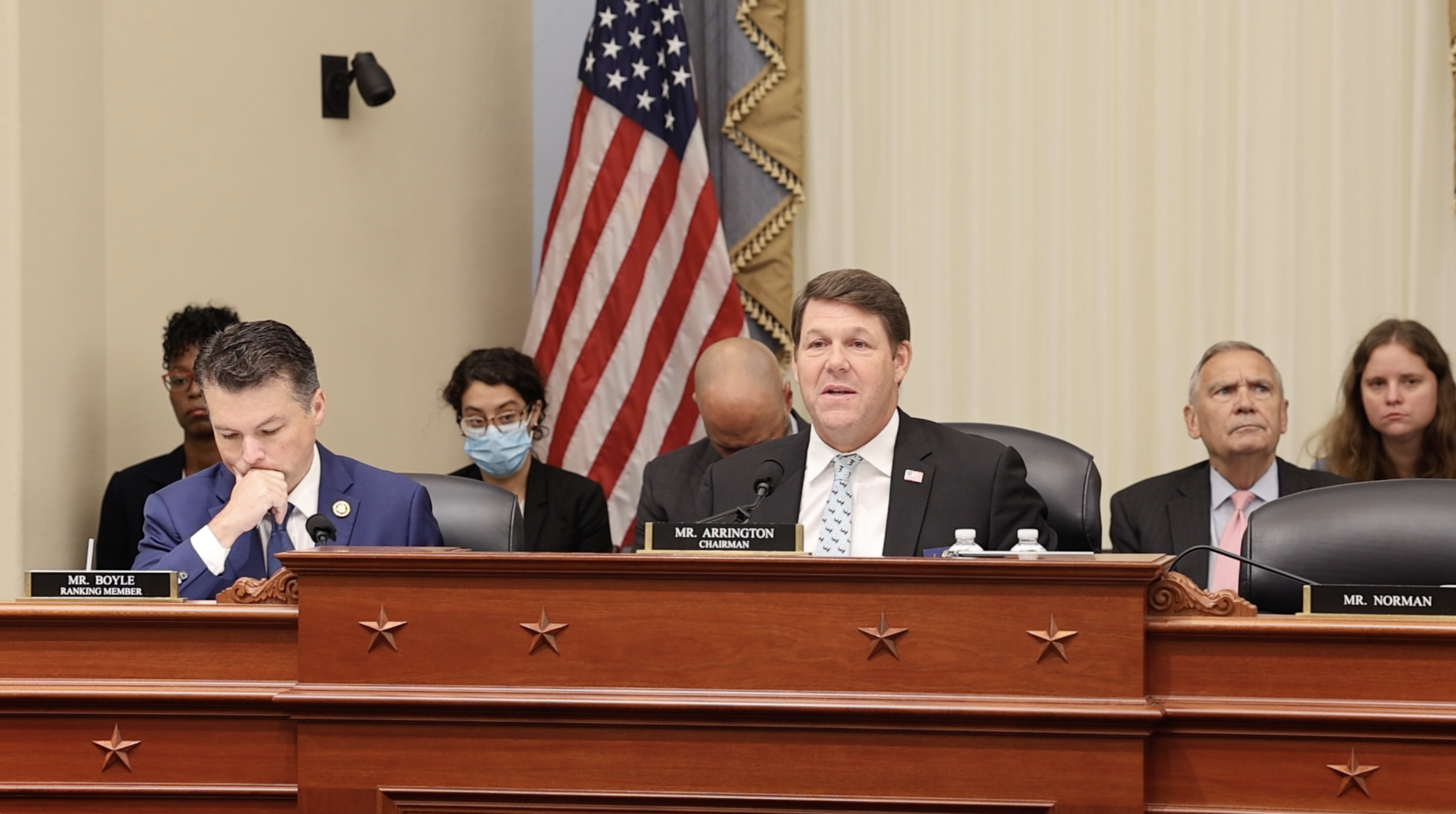Chairman Arrington Delivers Opening Remarks at Hearing Entitled “The Cost of the Biden-Harris Energy Crisis”
WASHINGTON, D.C. – Today, House Budget Committee Chairman Jodey Arrington (R-TX) delivered opening remarks at the hearing “The Cost of the Biden-Harris Energy Crisis.”

Click HERE to watch Chairman Arrington’s Opening Remarks
Opening Statement as Delivered:
"Our hearing today focuses on the fiscal cost and economic consequences of the Biden-Harris Administration's failed economic and energy policies. Those costs have been significant and measurable, and the consequences have been manifold and dire.
The whole government regulatory attack on conventional fuels, the increased taxes on oil and gas, and massive market-distorting green energy subsidies have choked the lifeblood of the greatest economy in the world. It's also crushed our working families with a cost-of-living crisis, and it has compromised our national security by making the United States more reliant on foreign adversaries.
The Biden-Harris Administration has issued 250 executive actions against one industry, an industry that employs 10 million people with high wage jobs and represents almost 10 percent of our total economy, and has had, no doubt, a positive impact on every facet of our daily lives by producing the most reliable, affordable, and abundant source of energy as a result of our God-given blessed resources and the most innovative and efficient energy industry operators.
We have the strongest and most dynamic economy in the world. It's why we have the greatest fighting force in the world, and it's why we are the world's superpower. But today, the failed energy policy is driven by what I believe is an extreme climate agenda that has undermined all of the above. It's resulted in higher gas prices at the pump, as high as over $5 dollars, the highest we've ever seen and experienced in this country, on average, it's been $1 dollar more per gallon in cost than the previous Administration.
The cost of electricity has gone up now 25- 30 percent for families. The total consumption cost for average-income families is almost twice what it was in the previous administration. Policies have consequences, and that consequence for families is a whopping $1,700 per family per year. These costs on the economy and our consumers, the American people, are a direct result of the policies of the Biden-Harris Administration.
On his first day in office, President Biden canceled the Keystone XL Pipeline, which would have saved us in transportation cost and safety, $50 billion but it didn't stop there. It was all critical infrastructure in the links of the supply chain, from export terminals to permitting refineries and other pipelines. Biden-Harris’s moratorium on drilling on public lands will cost $33 billion in lost GDP and roughly 60,000 jobs. There have been overreaching and overburdening emission regulations coming out of the EPA. Think about the methane gas rule. We've seen a 66 percent reduction by the industry over the last several years in methane gas emissions.
The EV mandate alone, the tailpipe emissions, cost $870 billion over roughly 20 years. They've depleted our strategic petroleum reserves to smooth off the edge of the spike in prices, and we're now down with the strategic petroleum reserve at a 40-year low. On the subsidy side, there are $800 billion in tax subsidies for green energy corporations, and some studies say that 70 percent of that value will be accrued to China because of their rare earth mineral mining and parts to the renewable energy industry. The EV tax credit is, in many ways, going to upper-middle and upper-income individuals, and I want to dig into that with you. The impact on middle-class families and our minority communities here in the United States is hard.
The fiscal health of our country is in decline. I think we all agree with that. You can't look at the balance sheet, you can't look at CBO’s projections, you can't look at the debt to GDP, which is higher than it's been since World War II and more. We have to rein-in spending and we have to grow this economy. We must have policies that encourage and foster growth, and central to that are good energy policies. If we can grow 1 percent, we can save $3 trillion to put against the deficit. If we grow 1 percent, we can add $10,000 over 10 years and hardworking Americans’ pocketbooks. We can bring the debt to GDP down by at least 20 percentage points.
Growth is key, and the lifeblood of that growth is energy policies. We've seen the opposite of it, disastrous energy policies and disastrous results. We must make a change if we're going to get our country on a good fiscal path and hand it to our children in the manner that gives them the opportunities and prosperity that we've all enjoyed.”


